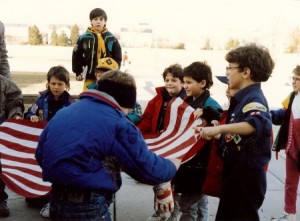
Today, Americans begin their annual celebration of the 4th of July. Parades, community events, family gatherings, and fireworks will enrich their day and throughout their extended weekend. Some Americans may take time to reflect on our country’s history while others might become sentimental about their patriotism. Most will simply enjoy their time off from work. I, on the other hand, am reflecting on my American citizenship. After living as an expat international teacher in India, I am a grateful American.
Traveling and living abroad has expanded my understanding of world history, cultural diversity, food choices, and how people live peacefully and not so peacefully in different countries.
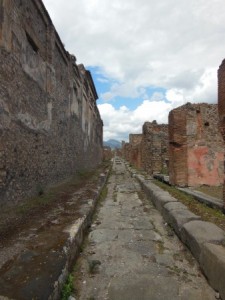
I acquired a totally different perspective of European history after touring the ruins of Pompeii and Herculaneum and then hiking up Mount Vesuvius. Standing at these notable sites, I had a birds eye view of the destruction and restoration that can never be captured in a book, magazine, video or an internet website. Mother Nature’s powers are indeed extreme and unforgiving.
I have also visited Israeli archeological sites that provide concrete evidence that supports written accounts. On my last trip to Israel, I explored the Hamat Teverya National Park in the Galilee. I was thrilled to see these preserved mosaic tiles from a 3rd century synagogue.
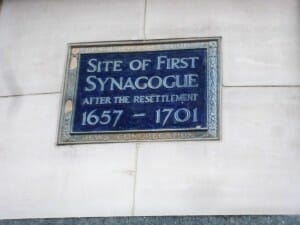
I have sought out remnants of Jewish history in other parts of the world with less success. Far too often, anti-Semitism, forced migration (expulsion), and dwindling populations have left little behind. A simple plaque oftentimes represents a tiny reminder of a once vibrant community. This is especially true when taking a tour of Jewish London.

By choosing unfamiliar and new foods, I have been able to expand my repertoire of tasty dishes. However, this can be challenging since the menus oftentimes are not in English. Getting restaurant personnel to acknowledge what is in a particular dish can be a true test of my patience, especially since I have dietary restrictions.

By visiting public restrooms, I quickly learned that women need strong legs to squat above primitive toilets. American restrooms are a luxury compared to those found in many parts of Asia.
The above comments are a minuscule sampling of what I have experienced during my decades of travel. My blog provides a small snapshot of some of these adventures.
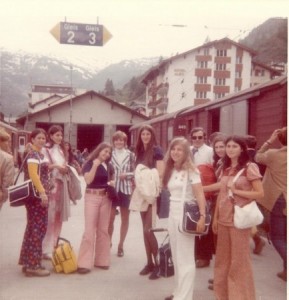
Until I stepped out of my comfort zone of suburban America and became an expat teacher, I did not appreciate what it would be like to live elsewhere. As a teenager, I had attended a notable 4 week summer camp in Zermatt, Switzerland. Later on, family vacations became an integral part of my life. All of these travels were limited and controlled experiences. For the most part, I led a sheltered American life.
My eyes were suddenly opened when I lived in Bangalore, India. For 50+ years, I took for granted my home’s electrical and water service. Electricity was a simple flip of a switch. Unless there was a power outage due to a storm or freak accident, I knew that I could use my appliances and lights without interruption.
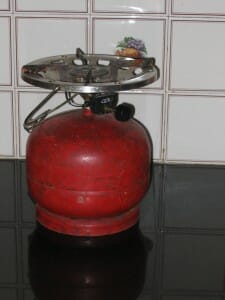
Not in India. Rolling power outages occurred multiple times a day. It was not unusual to postpone a meal or miss the very end of a TV show. I lived without a dishwasher, an oven, a vacuum, washing machine, clothes dryer, and simple kitchen appliances.
Purified water, a basic necessity of life, was not always guaranteed. Tap water could not be trusted and some bottled water was suspect. Whenever possible, I boiled my drinking water. If I wanted to take a shower, I had to wait at least 10 minutes for the small water tank above the shower to warm up.
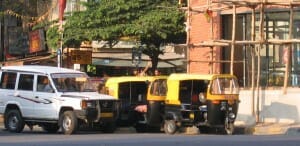
47th Cross in Jayanagar Bangalore
My ability to go from one place to another was severely limited. I did not have the freedom of getting into my own car and driving. I was totally dependent on auto rickshaws, taxis, prearranged transportation, or other people. My independence was seized by my Indian environment.
Due to the threat of terrorism, I had to open my purse and/or backpack whenever I entered a mall or large public forum. Armed guards flanked the entrances to the airport and also patrolled the inner corridors. The handful of synagogues that I visited were guarded 24/7 by the local police force. Having previously traveled in the Middle East, I realized the necessity for these precautions. However, it only added to my uneasiness.
Teaching at an international Indian school allowed me to see distinct differences in the educational systems. American education critics frequently look to socioeconomic factors as a root cause for inequalities. While America’s poor may in many cases receive an inferior education compared to their more affluent peers, their opportunities are still far superior to a poor Indian student.
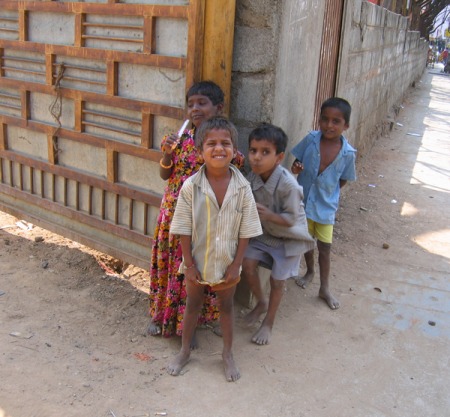
In India, people with financial means saw private schools as their ticket to success. Public school teachers were poorly trained and frequently did not show up for work. Without a compulsory education system in place, countless Indian children wandered the streets unsupervised. Many did not attend these inadequate schools. Sadly, these Indian children face a bleak future.
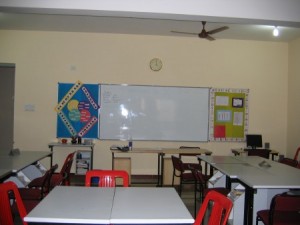
Private schools offered better educated teachers and more appropriate facilities. However, their teacher preparation courses lacked many basic elements found in an American program. The best schools in Bangalore did not compare to a suburban American public school.
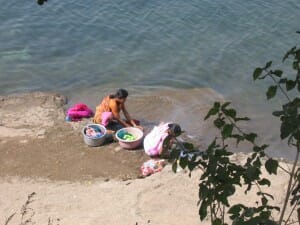
Equally unsettling was the total disregard for cleanliness and sanitation. Many Indian city streets were littered with garbage and animal feces. Some well dressed men openly urinated against public buildings and walls. In rural areas, women washed their clothes in rivers. Over time, I learned that employment, banking, environmental protection, and traffic laws that protect American citizens were not going to be part of my expat experience.

Without these basic protections in place, my rights were limited. I was advised by my boss that the walls at the international school had ears. I had to be mindful of the wild monkeys, roaming cows, stray goats, wild dogs as well as the cobra that lurked in the school’s field. I rarely went out alone at night.
I did learn ways to cope with my new environment. Early on, I realized that I had to adapt or else I would be doomed. Rigidity would be my downfall while flexibility would be my ticket to a successful adventure. My inherent resistance to change slowed down my transition process. Yes, I did shed a few tears and shutter in fear.
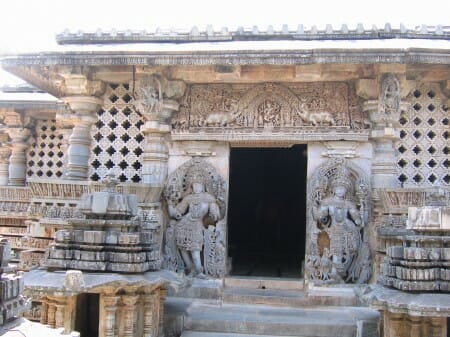
Eventually, I took time to explore various parts of India and learn about its culture. I saw amazing places that have enriched my understanding of world history. Some were at popular destinations such as the Taj Mahal while others were off the beaten track. It was an awesome experience to take a solo trip to the 12th century sites of Belur and Halebeedu. I will never forget my multi-day trip to the jungle with my 5th graders.
As I slowly coped with intense and unrelenting culture shock, I couldn’t help but acknowledge my longing for my previous Colorado lifestyle.
Living “without” morphed into a new awareness of gratefulness.
Isn’t that always the case?
With less “things”, many people crave what they had before.
Reflecting on the differences between life in India and America rekindled my sensitivity toward gratefulness.
On this 4th of July, I recall my 2010 expat days in India as well as my numerous travels abroad. Without reservation, I am grateful to be an American. I have yet to visit a country that provides so many opportunities and protections for its citizens. During this holiday weekend, Americans should celebrate their quality of life.
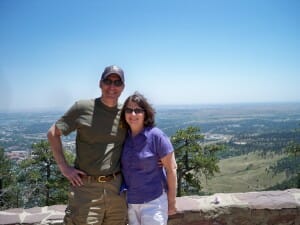
Boulder, CO
Had it not been for the colonists who created the underpinnings of the American government, I would not be able to embrace my wholesome and safe Colorado lifestyle.
Please take a few moments on this 4th of July to remember the Revolutionary War heroes and their families for their foresight and sacrifices. America would not be the land of unlimited opportunities had those brave colonists not been willing to fight the British.
Best wishes for a glorious 4th of July.
Related Posts
Teaching Abroad: Are you Ready for the Challenge
Overseas Women’s Club of Bangalore-Connecting with Expats
10 Responses to My Teaching Abroad
Precautions When Traveling to Third World Countries
Living Without Regrets (Momster blog on Family Circle Website)
Sandra’s Bio
Sandra Bornstein is the author of MAY THIS BE THE BEST YEAR OF YOUR LIFE. It is available on Amazon. Sandra’s memoir highlights her living and teaching adventure in Bangalore, India. She is a licensed Colorado teacher who has taught K-12 students in the United States and abroad as well as college level courses. Sandra is married and has four adult sons. The memoir was a finalist in the Travel category for the 2013 Next Generation Indie Book Awards, the 2013 International Book Awards, the 2013 National Indie Book Excellence Awards, the 2013 USA Best Book Awards, and received an Honorable Mention award in the Multicultural Non-Fiction category for the 2013 Global ebook Awards.

Leave a Reply
You must be logged in to post a comment.